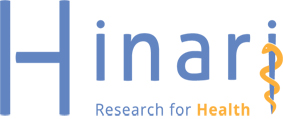Article Type
Article
Abstract
Background: Methicillin‑resistant Staphylococcus aureus (MRSA) is a current health concern, although patients undergoing elective, routine ENT surgery are excluded from this concern.
Staphylococcus aureus is a common cause of ENT bacterial infections.
Objectives: To know the epidemiology and risk factors of MRSA complicated otorhinolaryngological cases at Khartoum ENT hospitals in 2017.
Patients and methods: This is a prospective, cross‑sectional, descriptive, analytical hospital‑based study conducted on 155 patients in the period from December 2016 to December 2017. Of the patients, 50% were from Omdurman Hospital, 30% from Ibn Sina Hospital and 20% from Africa hospital. Patients’ data were collected through a data collection sheet. Different ENT swabs were taken from the patients and were sent to the microbiology laboratory in the University of Khartoum for culture and sensitivity. Data were analyzed using SPSS, version 22 and Excel 2010.
Results: Most patients of MRSA were from the age group of 21–30 years (33.3%). Males with MRSA were more (61.9%) with a male to female ratio of 1.63:1.00. Most of MRSA swabs were taken from the ear (57.1%). Ciprofloxacin (55%) was the most common previous antibiotic used in MRSA patients. Meropenem (52.4%) was the most sensitive antibiotics in MRSA patients. Diabetic, hypertensive, steroid use, chronic obstructive pulmonary disease, asthmatic, and admitted patients constitute 6.3, 8.3, 20.8, 41.6, and 47.9% of total patient percentage, respectively.
Conclusion: MRSA is highly prevalent among the populations of S. aureus isolated from different ENT clinical specimens in different hospitals in Khartoum State, with most of the MRSA isolates being from ear infections. The highest antibiotic sensitivity to MRSA was meropenem. Risk factors such as hypertension, diabetes, steroid use, chronic obstructive pulmonary disease, asthma, and previous admission have contributed to MRSA.
Keywords: Epidemiology, Khartoum, Khartoum ENT Hospitals, otolaryngology, risk factors, Sudan.
Recommended Citation
Abdalhay A, Ahmed SA, Musa MT,
et al.
Epidemiology and risk factors of methicillin‑resistant Staphylococcus aureus complicated otorhinolaryngological cases at Khartoum ENT Hospitals in Khartoum State, Sudan in 2017.
Pan Arab J. Rhinol.
2020;
10 : 54-57.
Available at:
https://pajr.researchcommons.org/journal/vol10/iss2/3
DOI: https://doi.org/10.4103/pajr.pajr_14_19
















